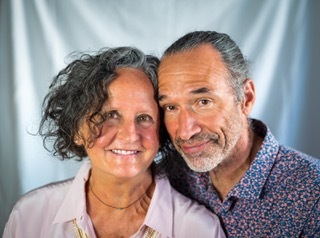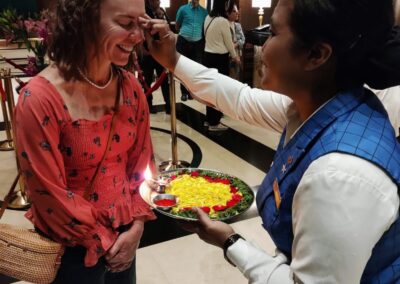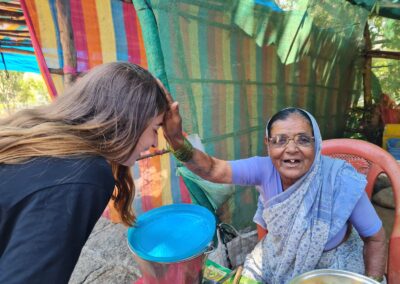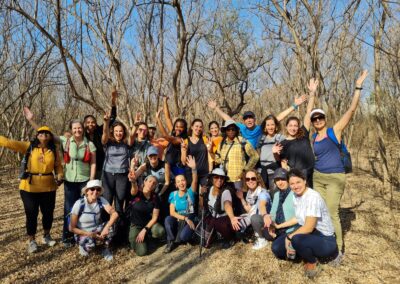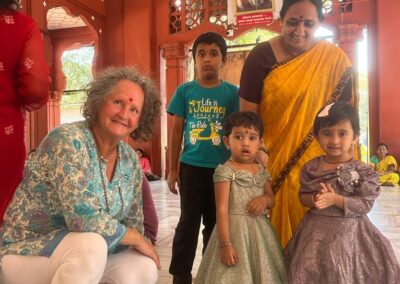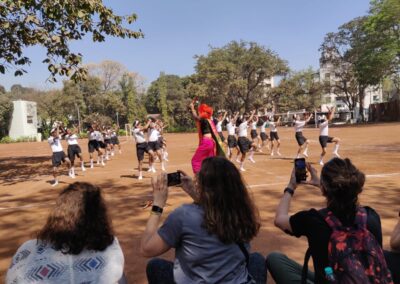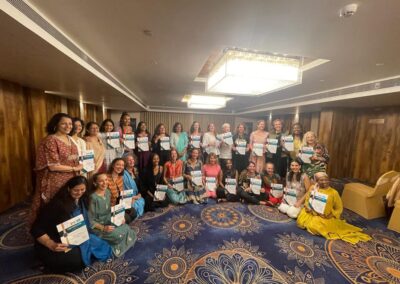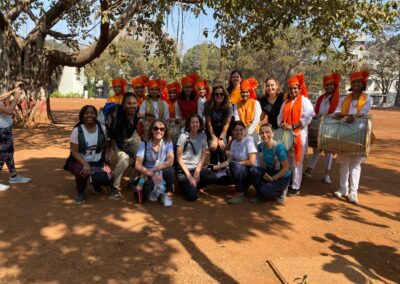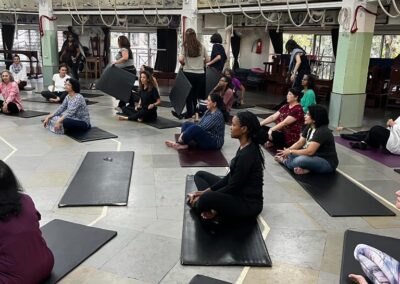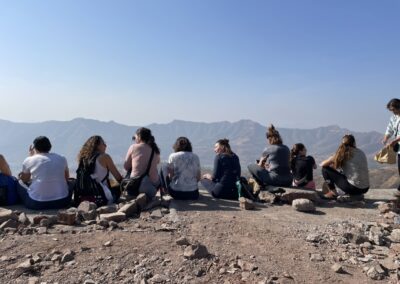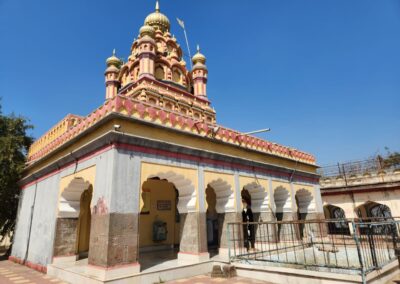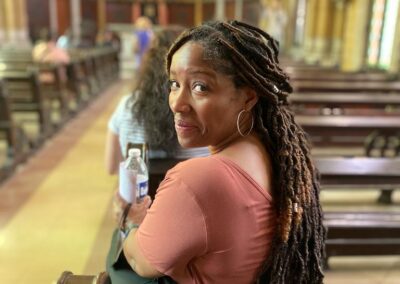Interesting facts:
- Maharashtra is a state located in the western region of India. It is the second-most populous state and third-largest state by area.
- The capital of Maharashtra is Mumbai, which is also the financial and entertainment capital of India.
- Maharashtra has a rich history and cultural heritage, with influences from various empires and dynasties that have ruled the region over the centuries.
- The state is also known for its rich history and culture, which can be experienced through its temples, forts, and other heritage sites such as the Elephanta Caves, Ajanta and Ellora caves, and the Chhatrapati Shivaji Maharaj Vastu Sangrahalaya Museum.
- Maharashtra is also an important industrial and agricultural state, with major industries including textiles, engineering, and information technology.
- The state is also known for its vibrant Marathi culture, which includes traditional dance forms such as Lavani and Bhavageete, and festivals such as Ganesh Chaturthi and Diwali.
- Pune is located near the Western Ghats, a mountain range that is known for its biodiversity and scenic beauty.
- It is home to several prestigious educational institutions such as the University of Pune and the Indian Institute of Science Education and Research.
- Pune is also known as the “Oxford of the East” due to the large number of students who come to study at its universities and colleges.
- Known for its vibrant nightlife, Pune is famous for its street food and local cuisine.
- Pune was once the center of power for the Maratha Empire, and the city is home to several historic forts, such as the Shaniwar Wada and the Sinhagad Fort.
- Pune is also known for its proximity to hill stations such as Lonavala and Khandala, which are popular tourist destinations.
- The city is also a major hub for the automobile, IT and manufacturing industries.
- Pune has a rich history and culture which can be experienced through its museums, temples, and other heritage sites.
- During the British Raj, women in Pune were among the first in India to participate in the freedom struggle and to demand equal rights.
- Pune was also home to several prominent women leaders such as Tarabai Shinde, the first woman to write a feminist text in Marathi, and Anandibai Joshi, one of the first Indian women to obtain a medical degree.
- In the early 20th century, Pune was a center of social reform movements, including the women’s education and suffrage movements.
- Women’s organizations such as the Poona Women’s Social and Political Union, which was founded in 1911, played a significant role in advocating for women’s rights and education.
- It was the birthplace of the Indian Women’s University, established in 1916, and was the first university in India to be exclusively for women.
- Today, Pune continues to be a city where women are actively engaged in various fields, and the city has a high percentage of women participating in the workforce.
Walks in and around:
- Koregaon Park
- Osho Park
- Sarsbaug Gardens
- Parvati Hill
- Sinhagad Fort
- Tekdi
- Bhaje and Karle Caves
Historical Visits to:
- Zapurza Museum
- Pune University
- Tata Motors
- Iyengar Institute for Yoga
- Karve Stree Shikshan Sanstha
- Bhaje and Karle Caves
- Indian Classical Dance
- Kaivalyadham Yoga Institute
Lectures by Experts on:
- Women and Hinduism
- History of India
- Renowned Women of Pune
- Ayurveda
- Indian Classical Dance
- Traditional Indian Diet
- Iyengar Yoga
FAQS Pune, India
What is the fitness level required for the Walk.
You will be walking on trails and on pavement for approximately 12-28 Kilometers a day for 6 days. Walking 15 kilometers (9.3 miles) per day for 6 days is a significant physical challenge and requires a good level of fitness. Here are some things to consider when determining if you are ready for this level of activity:
Cardiovascular fitness: Walking 15 kilometers per day for 6 days is a cardiovascular workout, and it’s important to have a good level of cardiovascular fitness to complete it. This can be achieved by regular aerobic exercise such as brisk walking, cycling, or running.
Endurance: Being able to walk for several hours at a time requires a good level of endurance. Building up to this level of activity can be done by gradually increasing the duration and intensity of your walks over time.
Strength: Walking for several hours per day requires good leg and core strength to help you maintain good posture and to carry your gear. Regular strength training exercises such as squats, lunges, and leg press can help to build leg and core strength.
Flexibility: Walking for long periods of time can be hard on the body, so flexibility is important to reduce the risk of injury. Stretching and yoga can help to improve your flexibility.
Training: It’s important to train for this level of activity by gradually increasing the distance and duration of your walks over time. Start with shorter distances, and gradually increase the distance you walk each week until you are able to walk 15 km per day for 6 days.
It’s essential to consult with your doctor before attempting this level of activity, particularly if you have any health concerns or haven’t been physically active in a while. A good level of fitness is not only important for the physical aspect of the walk but also for the mental aspect of the journey, it will make it more enjoyable, and less tiring.
What will be the weather during our journey?
The weather in Pune, India in February is very pleasant.
Pune, India is located in the western part of the country and has a tropical wet and dry climate. February falls in the post-monsoon season, which is considered the winter season. In general, the weather in Pune in February is relatively cool and pleasant, with daytime temperatures averaging around 25-28°C (77-82°F) and nighttime temperatures around 12-15°C (54-59°F).
Rainfall is relatively low in February, but there may be occasional light rain or drizzle. Humidity is also relatively low during this time of year. The sky is usually clear, and the sun is usually shining, with occasional clouds.
It’s a good time to visit Pune as the temperature is mild and the weather is not too hot or too cold, making it perfect for sightseeing and outdoor activities.
What should I bring, how should I pack for such a journey?
- Clothing: Pack comfortable and breathable clothing that can be layered, including a waterproof jacket, a sun hat. In keeping with cultural standards, please ensure your shoulders and knees are covered. Dress modestly.
- Footwear: Pack a sturdy and comfortable pair of hiking boots or shoes with good grip and support. Also, pack a pair of lightweight sandals or shoes.
- Food: Pack high-energy snacks such as nuts, dried fruits, and protein bars
- First-Aid kit: Pack a comprehensive first-aid kit, including bandages, pain relievers, anti-inflammatory, and antibiotic ointment. Hand carry any medications
- Personal hygiene items: Pack personal hygiene items such as a toothbrush, toothpaste, wet wipes, and hand sanitizer.
- Sun protection: Pack a wide brim hat, sunglasses, sunscreen, and lip balm.
- Copies of your passport and visa
- Don’t forget your journal
- A resilient and kind attitude!
What is the food like? Will it be vegetarian or non-vegetarian?
Meals will include traditional cuisine from the Pune region which will accommodate most varied preferences.
Pune, India is known for its diverse and delicious food culture. Here are some classic dishes from the Pune region that you should try:
- Misal Pav: This is a popular breakfast dish made with a spicy mixture of sprouted lentils, known as “misal,” served with pav (a type of bread roll) and topped with a variety of chutneys, yogurt, and farsan (a type of fried snack).
- Vada Pav: A popular street food dish that consists of a deep-fried potato patty called vada served in a pav (bread roll) with a variety of chutneys and spices.
- Kothimbir Vadi: A traditional Maharashtrian snack made from gram flour and coriander leaves. It is steamed, cut into small squares, and fried.
- Pithla Bhakri: A staple dish from the region made of a thick chickpea flour-based curry, known as “pithla,” served with bhakri (a type of bread made from jowar, bajra, or ragi flour).
- Sabudana Khichadi: A popular dish made with sabudana (tapioca pearls), peanuts, and spices, usually consumed during fasting days.
- Kande Pohe: A traditional breakfast dish made from flattened rice, known as “pohe,” cooked with onions and potatoes.
- Shrikhand: A sweet dish made from hung yogurt and flavored with saffron, cardamom, and nuts.
- Kala Vatana Amti: A traditional Maharashtrian dish made from black peas and a variety of spices.
- Bharli Vangi: A traditional dish made from stuffed brinjal cooked in a tomato-based gravy
- Modak: A sweet dumpling made from rice flour and filled with sweet coconut, jaggery and nut filling, it is a traditional sweet from Maharashtra
I hope it surprises and delights you!
What type of accommodation will be provided during the trek?
You will return every night to a very comfortable 4-star hotel.
Please note you are responsible for any travel and health insurance, and this should include emergency evacuation, cancelation protection, add on excursion, Cancellation protection, Airfare to and from Pune airport
Meet The In-country Cultural Expert
Manjiri Khandekar loves learning and has a degree in Ancient Indian Culture and History from St. Xavier’s College, Mumbai, a Post-Graduate Diploma in Mass Communications from the Sophia Polytechnic, Mumbai, and a Master of Philosophy in French from the University of Pune.
A collaboration with the University of Lausanne, Switzerland, started her career at the University of Pune after authoring a textbook in French language acquisition. Her professional trajectory culminated two decades later with a project at the Montpellier University in France, where she presented two Marathi films subtitled into French with a team of students and teachers. She recently retired after twenty years of teaching French at the Master’s level.
In May of 2007, Manjiri launched her own company: Heritage India Communications Pvt. Ltd. The focus is to create a heightened awareness of India’s rich and vast heritage. In addition to scholarly publications, Heritage India organizes teacher and student workshops, quiz competitions, heritage tours, and multiple online courses on various aspects of Indian heritage for a global audience.
Punyakatha – Pune’s Story of a Million Years, published by Manjiri in October 2021, is a children’s book but serves as a family encyclopedia of the treasures of the region of Pune. As an Army wife, Manjiri has lived and traveled across different parts of India and became involved with the Women’s Heritage Walk in July 2022 and is proud and excited to showcase her country in this unique Walk with women from across the globe.
Anuradha is the Admin and Accounts Head at Heritage India Communications Private Limited. She has been associated with the organization for over a decade and is very closely involved in the day-to-day activities of the organization.
She has completed a bachelor’s degree in science and a bachelor’s in journalism from Pune University.
Alongside her career, she has a keen interest and is involved in various philanthropic activities, as demonstrated by her association with the Rotary International Club Pune. Projects related to generating electricity in tribal areas and creating awareness about women’s health, to name a few. She also helmed the position of the President of the Rotary Club of Pune, Sinhagad Road, during 2021 – 2022.
Namrata has been an integral part of Heritage India Communications Pvt. Ltd. from its inception, handling the marketing and distribution in the early years to handling the website and other digital aspects of the company, even as she moved to Canada.
Namrata has a Bachelor’s from Fergusson College Pune in Economics and Université de Paris 2 in Mass Communications. She also has a Master’s from École Supérieur de Publicité with Certification as a Manager of Communications agencies. She enjoys working with children and being an active part of the community. Alongside Heritage India, she enthusiastically volunteers at her children’s school and is a part-time substitute teacher.
A mother of two active boys, in her free time, she tries to stay fit through dance and sports and explores places and cultures through books.
In-Country Historical Experts
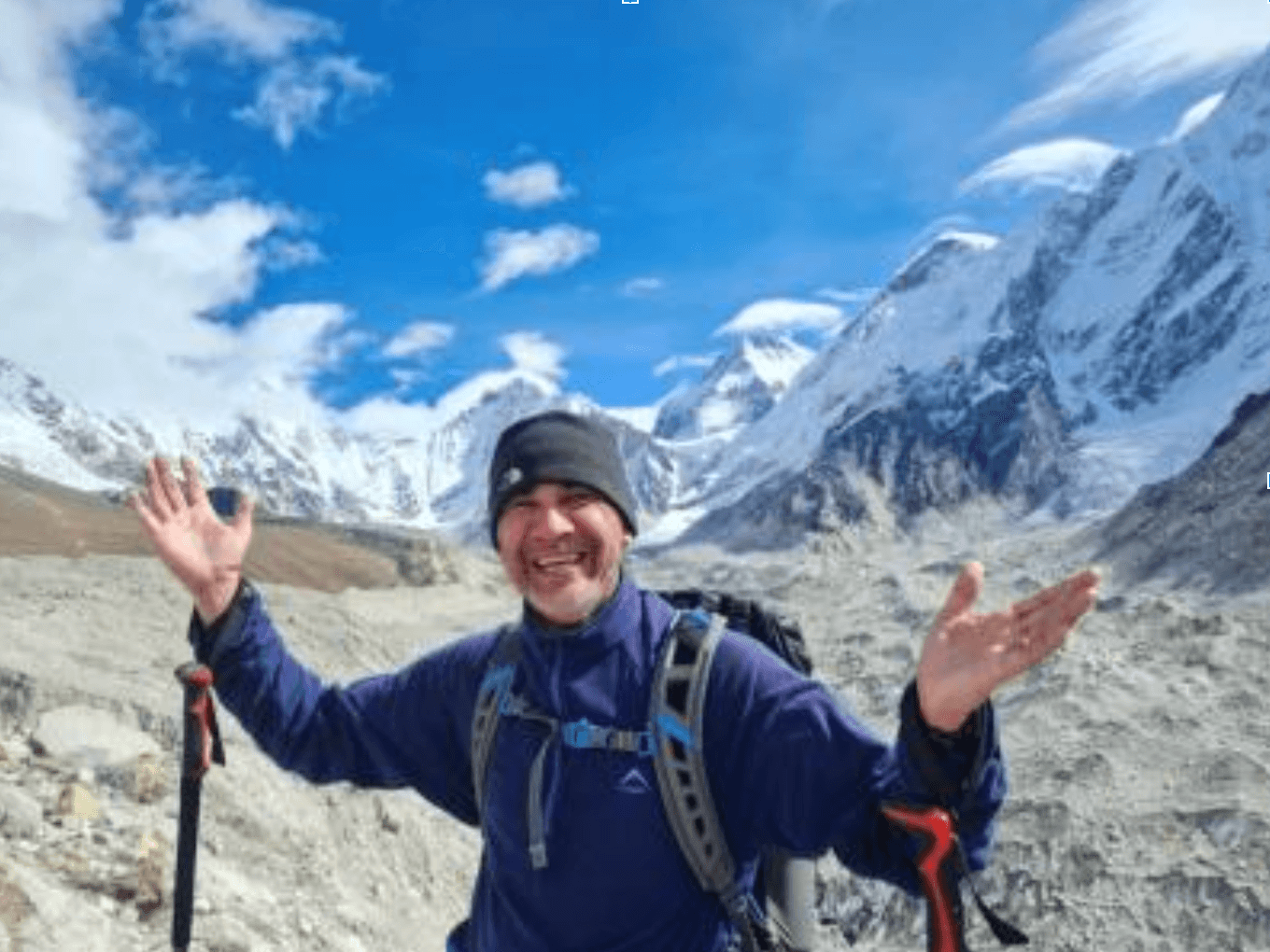
Christopher Louzado
Show More
Travelling across the planet his journeys explore the world outside as also the world within. In his personal life, he is an avid fitness enthusiast, a photographer and a lover of life in general. He’s a marathon runner, a cyclist and a nature lover. Christopher has in October 2022 returned from a successful trek to Everest Base Camp and counts climbing Kilimanjaro and walking the 1000 km Camino de Santiago pilgrimage via the Camino Frances route as some of his treasured journeys.
Show Less
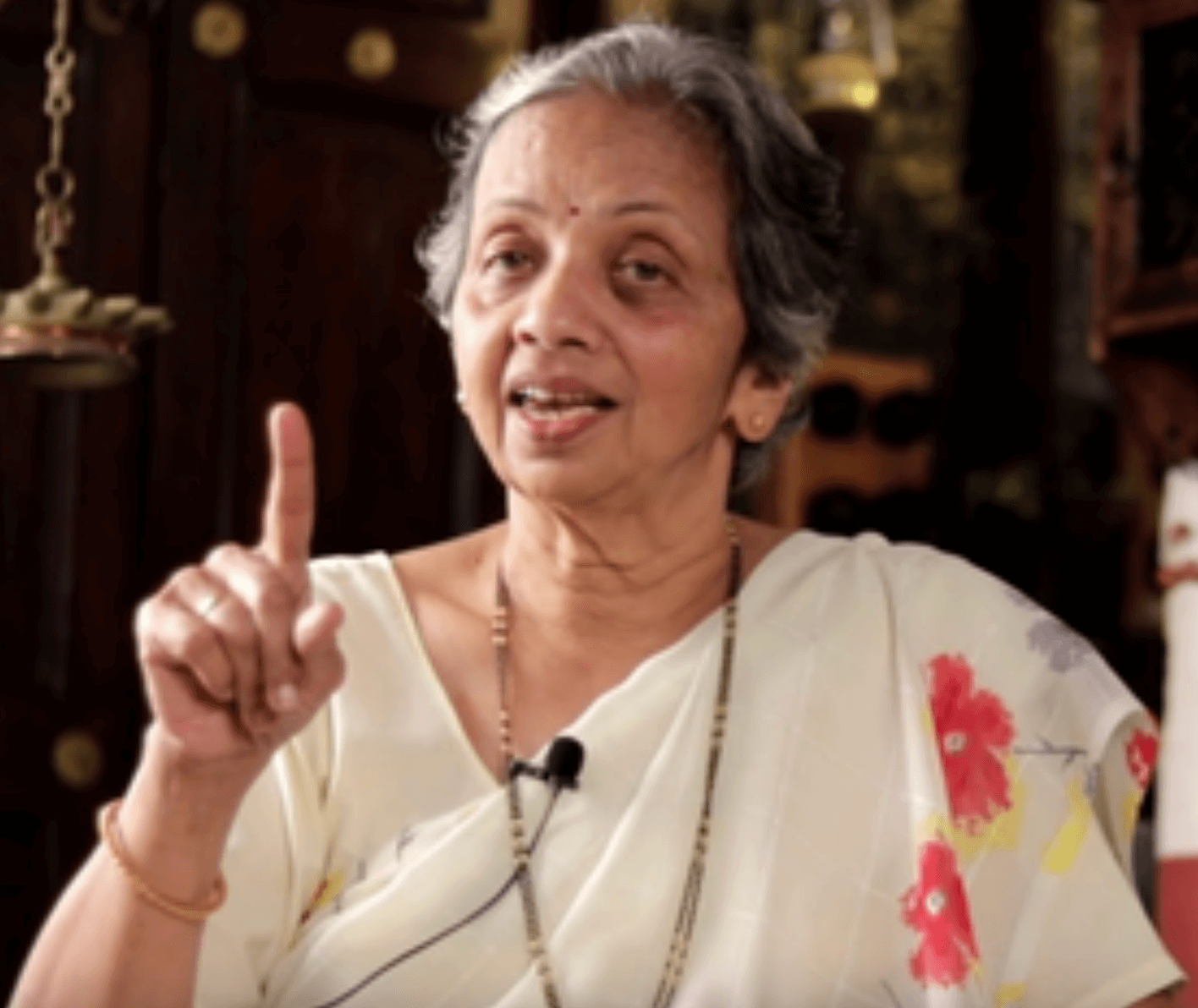
Dr Sucheta Paranjape
Show More
She graduated with Sanskrut and maths topping the University with many prizes. She has a Masters degree In Sanskrut and Pali and her doctoral thesis is on the Samaveda. She has worked in the cultural index of the Mahabharat project at the Bhandarkar Institute, as a professor of Sanskrut, in the Vedic studies and Indology departments. Dr Paranjape was a visiting faculty in Macalester College, St Paul, US and Liepzig University in Germany and was the director of the Associated Colleges of the Midwest, Chicago, USA-India programme for 10 years. Teaching Sanskrut is her profession, passion and mission.
Show Less
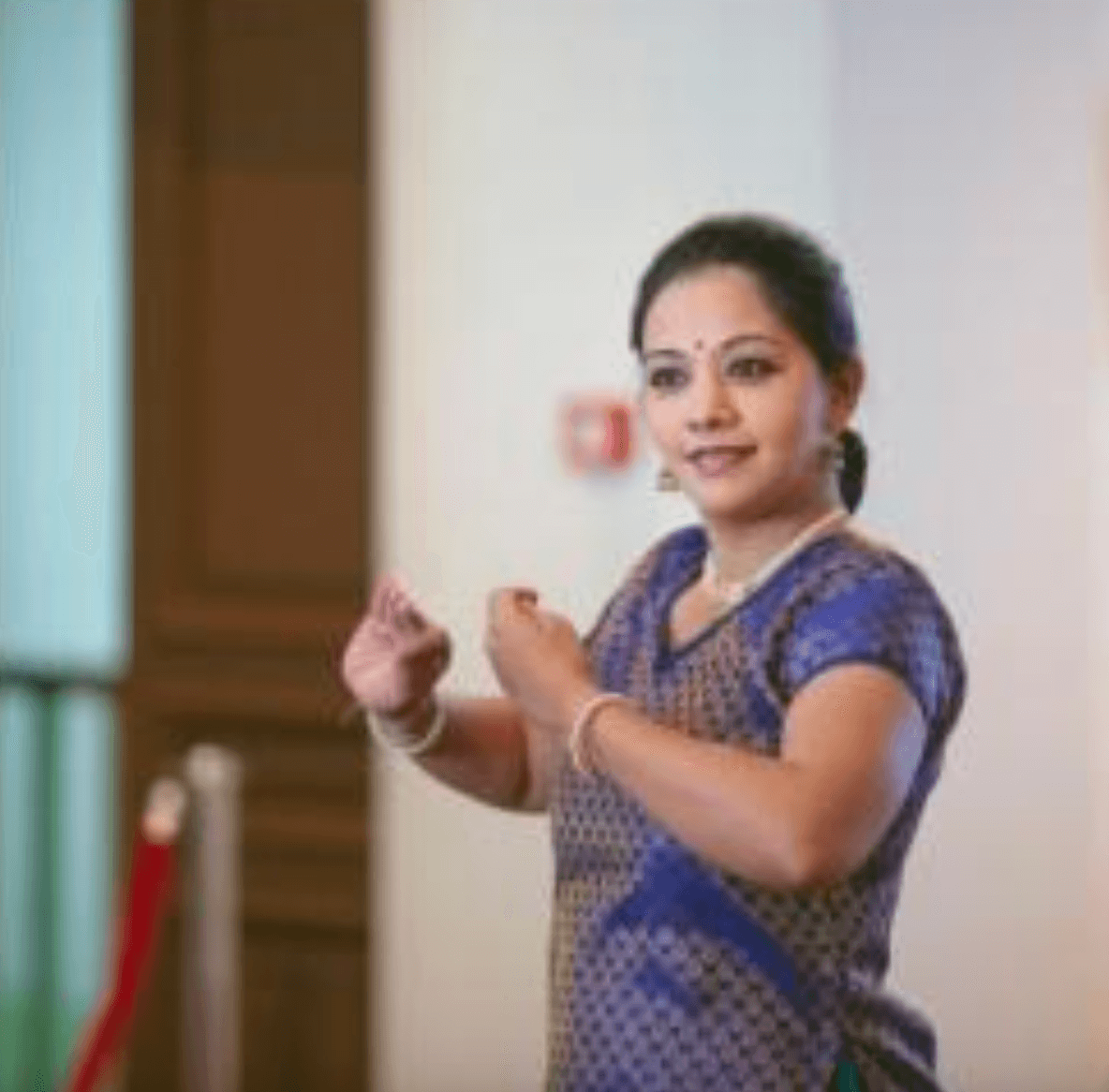
Rashmi Terphale-Pandkar
Show More
In the past 15 years, she has blossomed into an artist with a natural sense of grace and rhythm, qualities for which she was commended by Pt.Birju Maharajji after he watched her perform at the National Kathak Festival in New Delhi.Rashmi has been performing solo and with her peers in India and around the world.Her recent solo performances were at Rome & Milan in Italy,Yoga Centre – Denver, Columbia College- Chicago, University of New Mexico-Albuquerque, Berkeley School of Music -Boston,USA,St Petersberg & Moscow, Russia.At various prestigious festivals in India including The Sangeet Natak Akademi – New Delhi,’Swarna Nritya Pratibha Festival’ at Baroda.Rashmi is the Principal of the Dance Unit at Kalachhaya, where her students have won laurels for their performances.She also makes time to mentor children take their first steps in Kathak. She holds a Masters Degree Degree in Psychology and her areas of research include dance as a aid to therapy.
Show Less
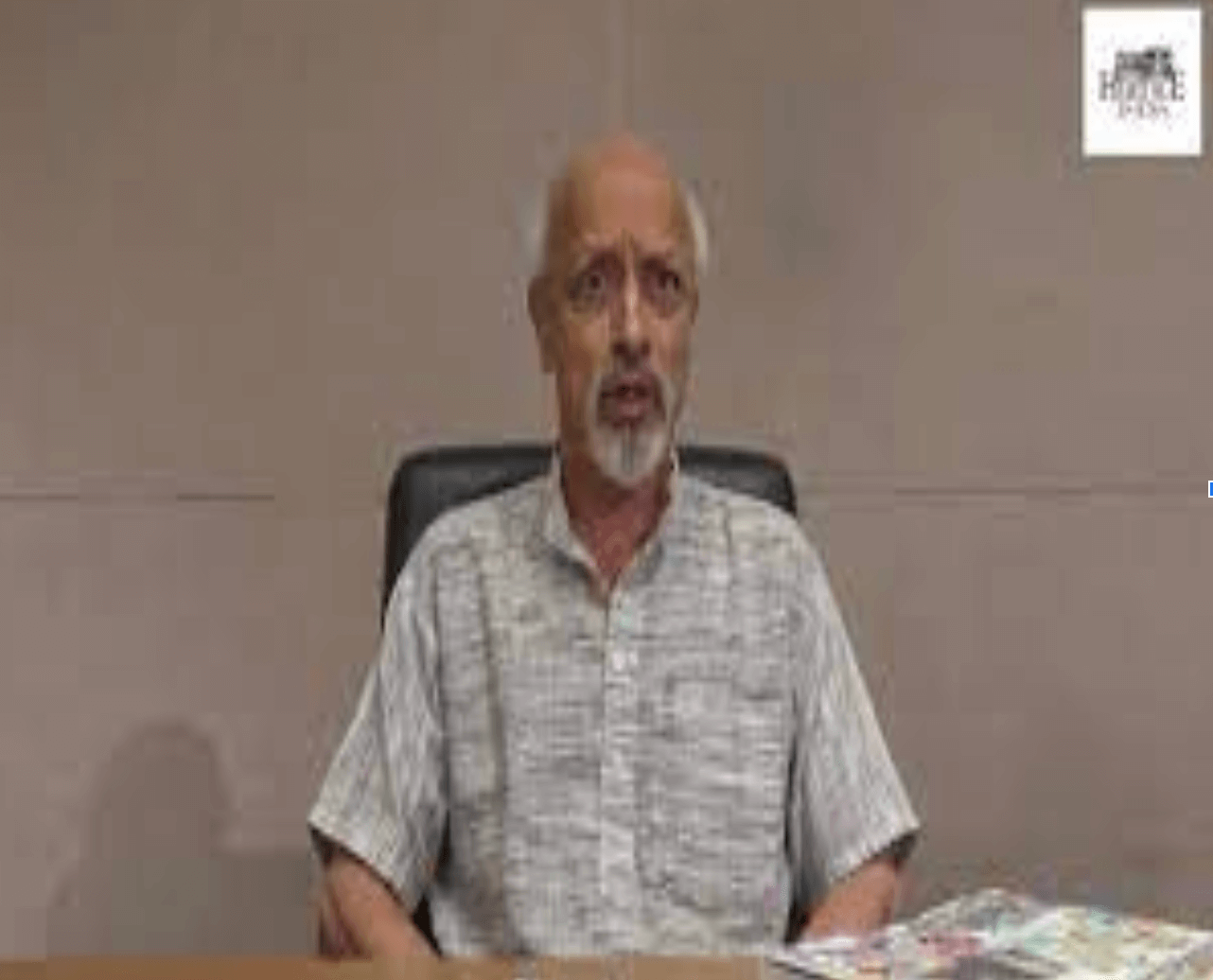
Professor P.K. Ghanekar
Show More
After a distinguished career as Professor of Botany for 37 years, he is now busy doing what he loves most – travelling and writing. The urge to explore and his spirit of enquiry have taken Prof Ghanekar deep into the Himalayas, up to Mt. Everest, and to the forts and fortresses of the Sahyadri Hills of the Western Ghats, with each excursion planned to the last detail. “I never visit places merely to absorb their scenic beauty, but also to study their history, geography, botany and anthropology. That’s the motivation behind my travels,” he says.
Show Less
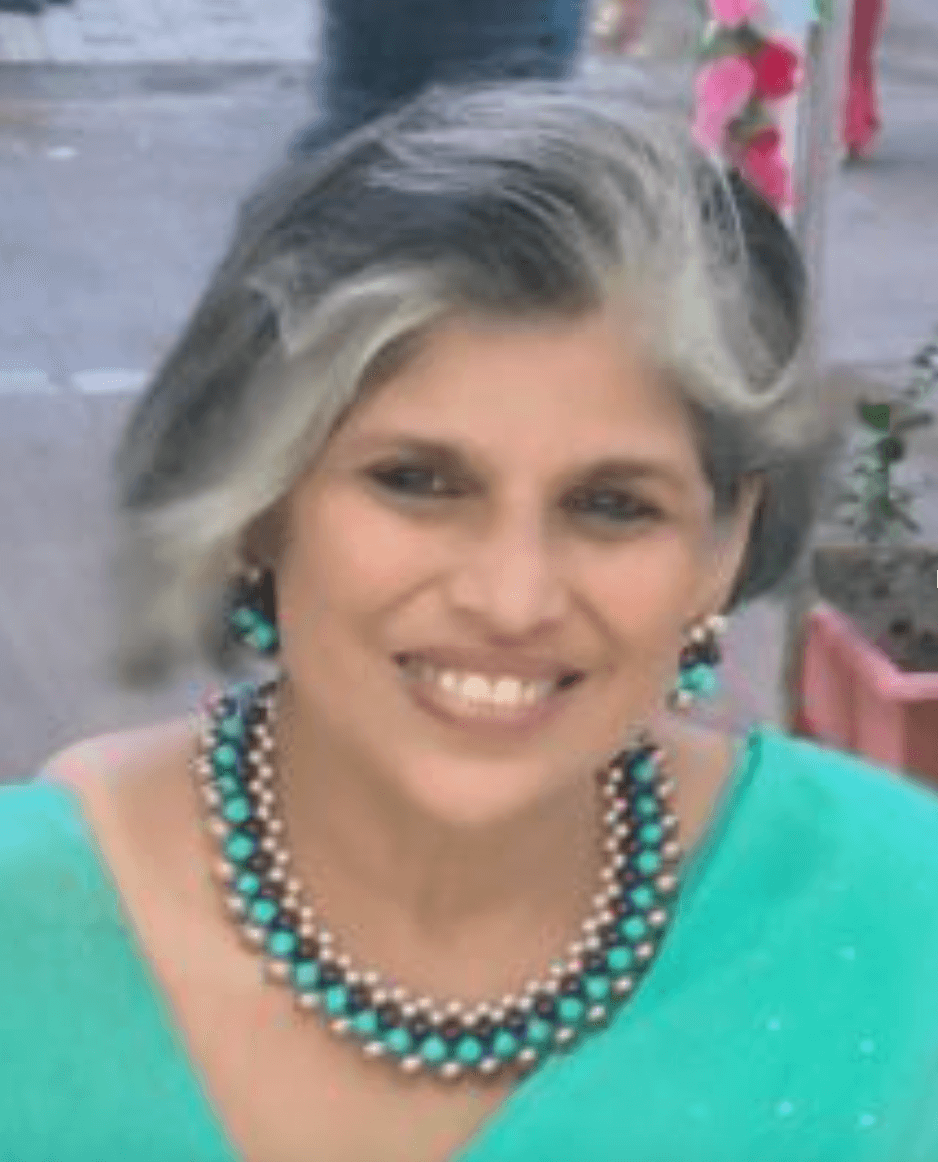
Sanjana Jog
Show More
She also has a PG Diploma in Human Rights and another PG Diploma in Nutrition and Dietetics. An Army wife, she has travelled a lot all over India as well as abroad. She has worked in various fields and is presently working with Freedom from Diabetes, an organisation dedicated to the reversal of diabetes and other lifestyle illnesses. Sanjana has many hobbies related to food, cooking and Arts and Crafts.
Show Less
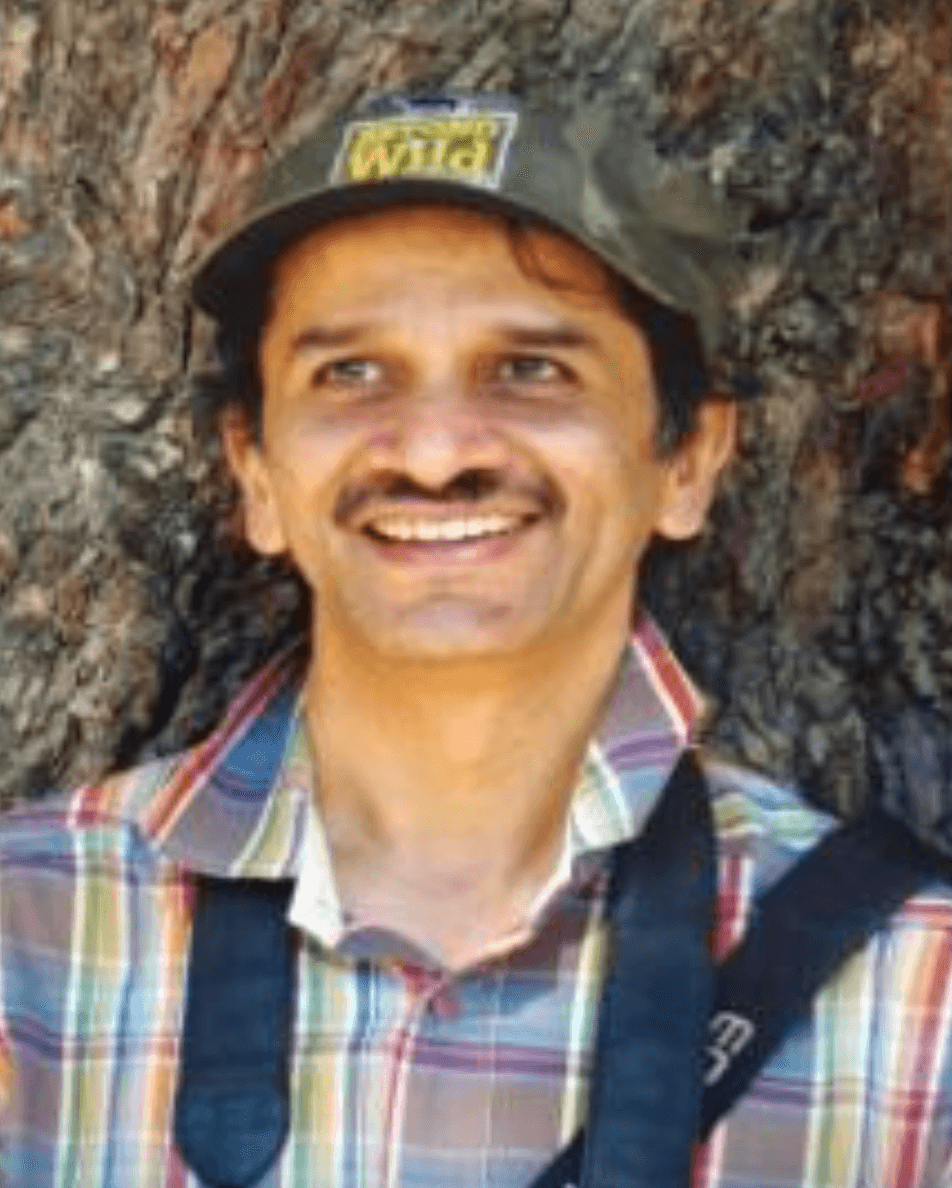
Dr Parag Mahajan
Show More
He did fellowship in CT scan from Washington University Medical Centre, USA. Nature and especially Botany is his region of interest along with Environmental issues. He completed M.Sc., Environment and Ecology and 1 year course in Sustainable Development at Ecological Society, Pune. He has co-authored 4 books on trees and written several articles on plants and environmental issues. He has extensively travelled Indian and East African forests to study its flora and fauna.He, with his son has started an organisation called Beyond Wild Travel, which conducts wildlife tours with an objective to create environment protection awareness among people.
Show Less
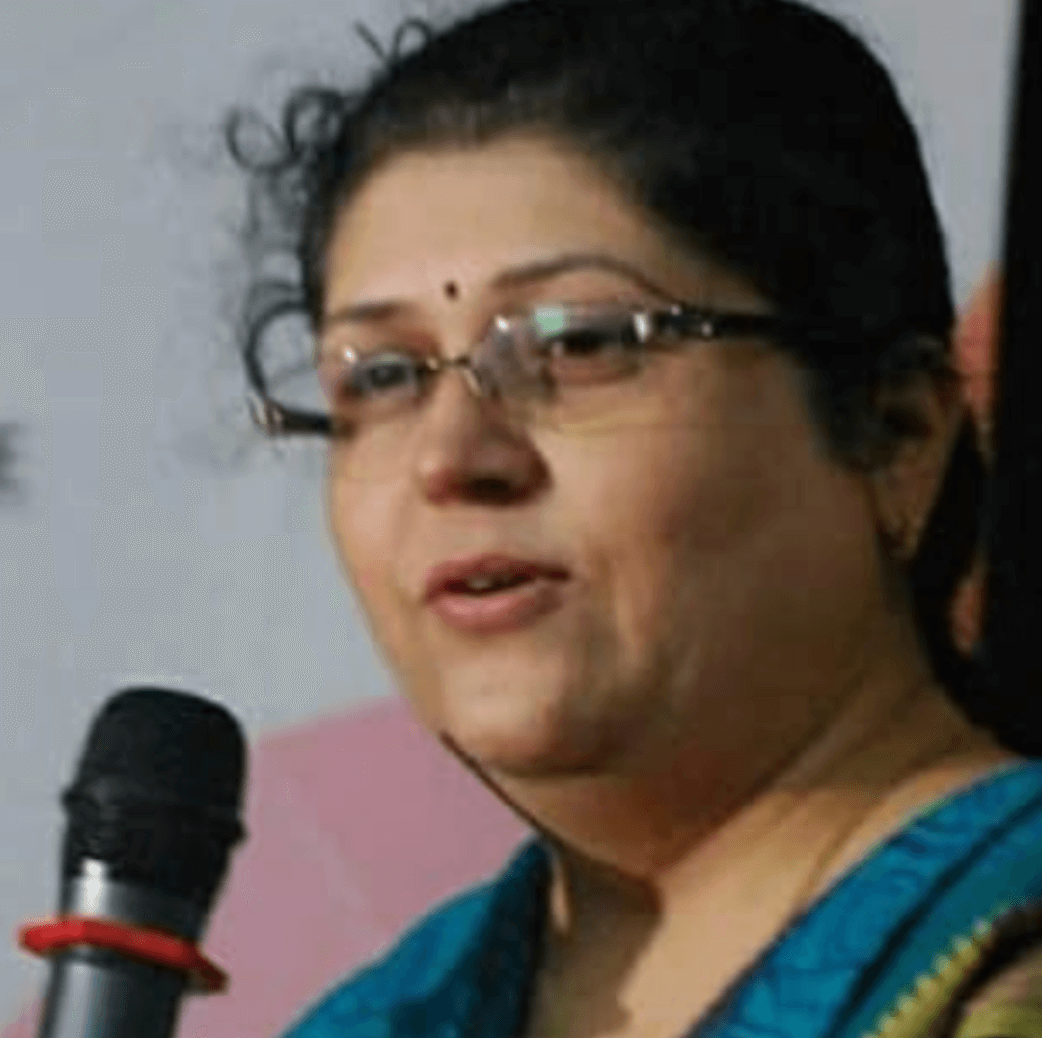
Dr.Manjiri Bhalerao
Show More
Passionately dedicated to the study and teaching of Ancient India for the last 30 years, Dr Bhalerao has been awarded many honours, including the Lifetime Achievement Award by the International Collectors’ Society of Rare Items and a Research Grant of the Nehru Centre. She is a member of Advisory Body of the ICHR [Indian Council of Historical Research], Pune chapter.
Show Less
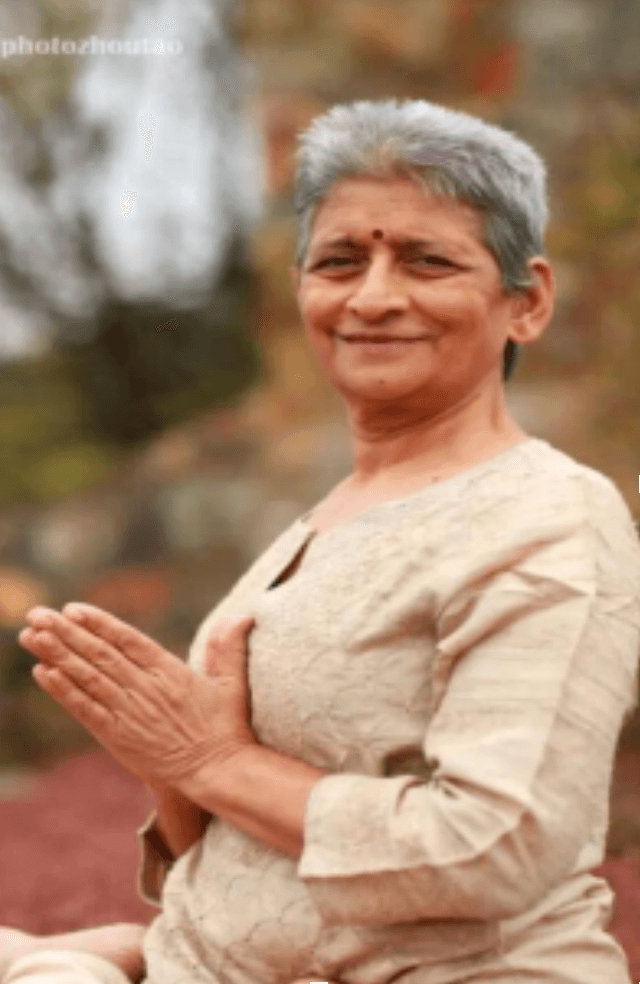
Rajalakshmi Nidmarti
Show More
For the last 25 years she has been teaching yoga in the RIMYI [Ramamani Iyengar Memorial Yoga Institute].
Show Less
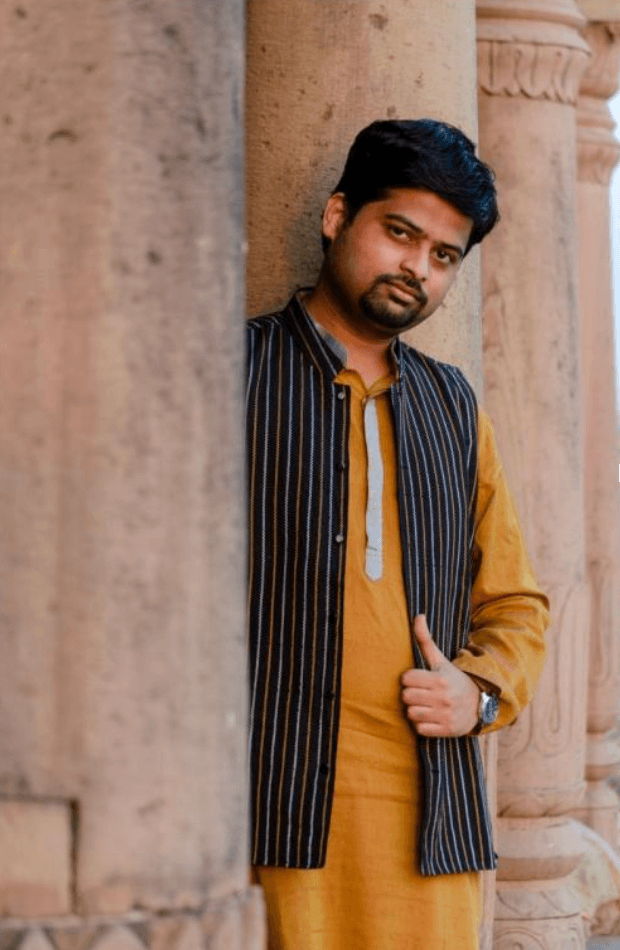
Sandeep Dahisarkar
Show More
He has worked as a Cultural Consultant with the Holkar Cultural Center, Maheshwar, Madhya Pradesh, an initiative of the royal family of Indore. He was also awarded the Gulestan Bilimoria Junior Research Fellowship 2017 by the Asiatic Society of Mumbai for his research – ‘The Cultural History of the Pathare Kshatriyas in the Bombay Presidency’, which resulted in his first book – ‘The Pathare Kshatriyas of Bombay’. His second book पारले: ज्ञात-अज्ञात was published in 2023. He has taught in many different colleges of Mumbai as a Visiting Faculty and is often invited as a Guest Lecturer on the subject of Archaeology & History. He has designed and successfully conducted Heritage walks.
Show Less
Our Partnering Team
- Heritage India Communications Pvt Ltd is a social enterprise with a difference. The aim of the organisation is to inform and educate and thus nurture pride in our national identity. The company was set up in 2007 with the primary aim of creating awareness about India’s rich legacy and we have been doing this through various media.
- We have so far published 2 quarterly magazines–‘Heritage India’ (24 issues) for our company and ‘Maharashtra Unlimited’ (18 issues) for the Department of Tourism of Maharashtra, which has won the ICE (In-house communication excellence) award at the national level for 4 consecutive years; Coffee table books; conducted training workshops for teachers of History and Social Sciences, for trainers for guides for the Maharashtra Tourism Department and conducted quiz programs and excursions for school children. Heritage Tours across the country in company of experts is another of our specialized fields of activity. We create unique experiences through interactive trips to heritage sites.
- The company has a three fold vision: Make all fellow Indians aware of our rich heritage and motivate them to become guardians of the same; give authentic information about this ancient land to all outsiders who are interested; and, carry forward our legacy to future generations.
Registration/Bio Form
Medical Release Form
Apply for your t-shirt
SPONSORSHIP:
We are forever grateful to the individuals, companies, and businesses that believed in the strength and tenacity of women and supported this challenge. Click here to see what sponsors have blessed us since 2016.
Pictures from our Journey
About Us
